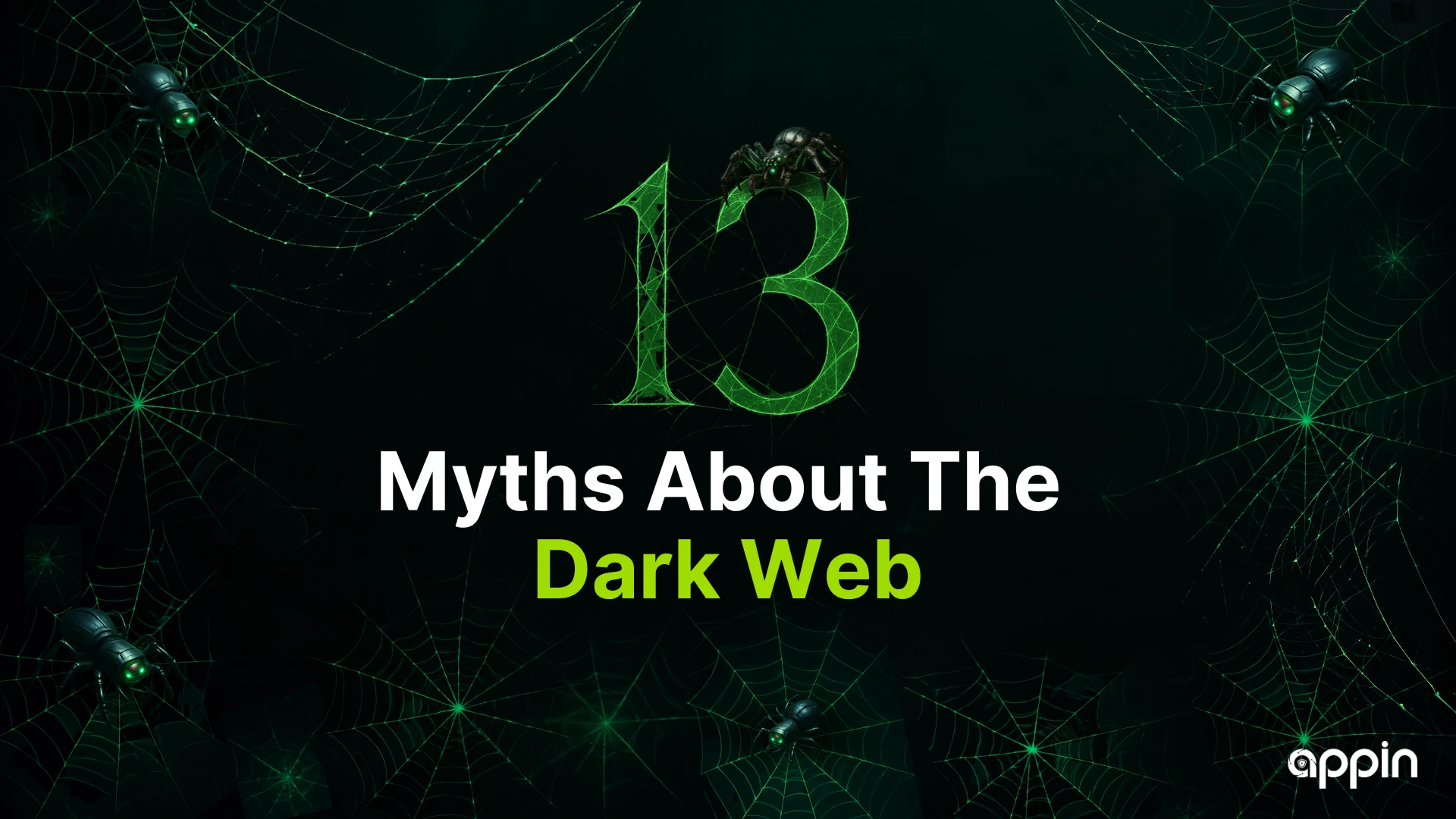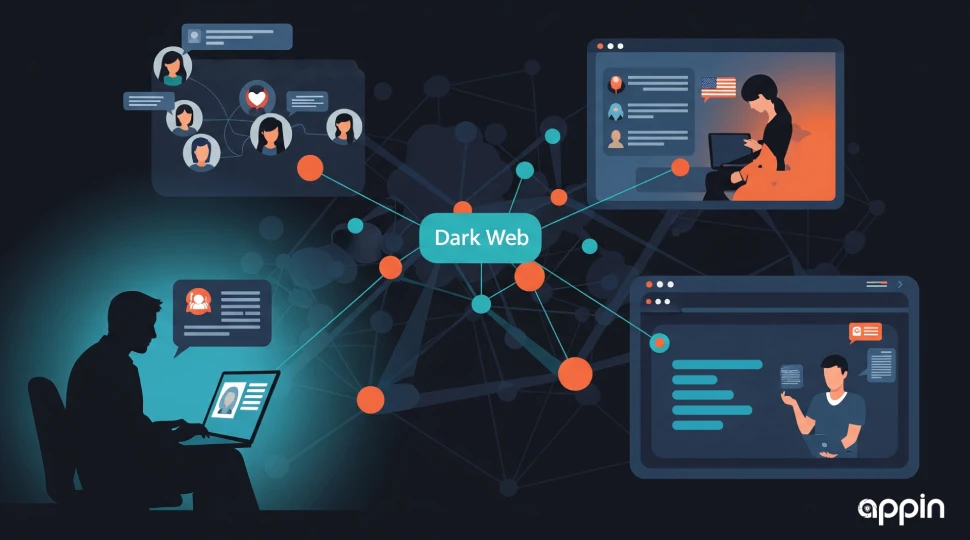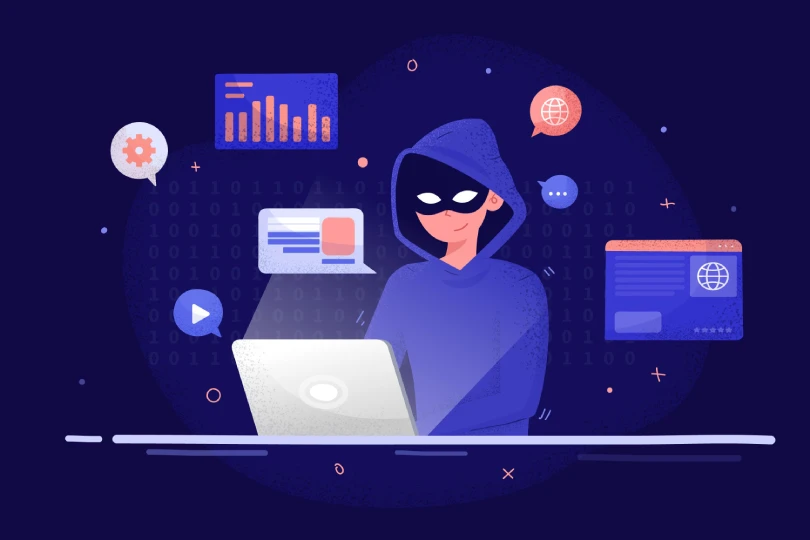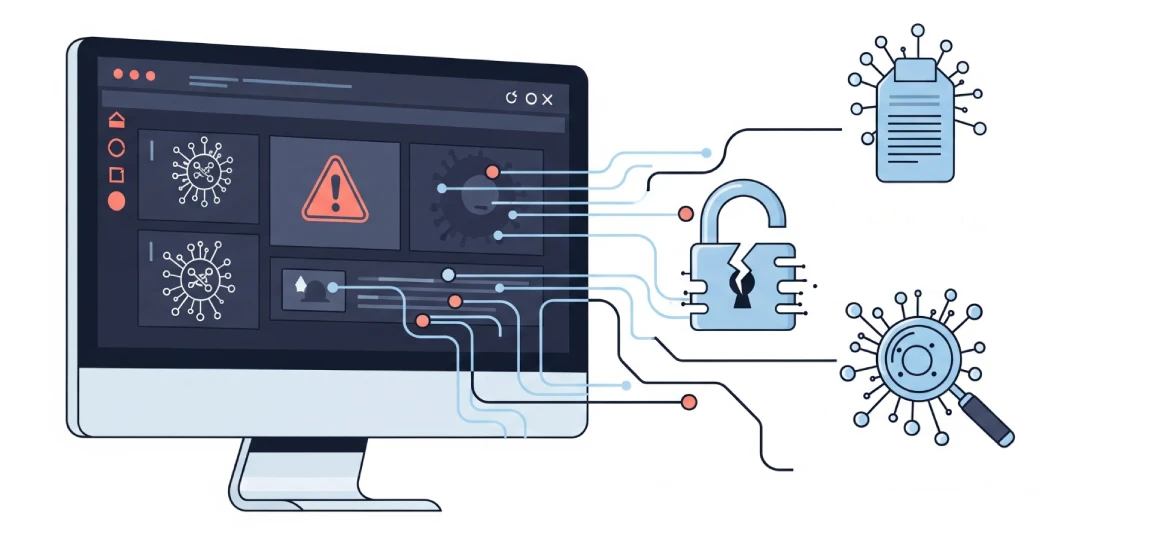The internet has many layers, and the dark web is one of the most talked about yet misunderstood parts of it. Over time, countless Dark Web Myths have spread, making it seem like an entirely illegal, hidden space only used by criminals. In reality, much of what students hear about it is either exaggerated or simply wrong.
This curiosity often connects to a growing interest in ethical hacking and cyber security, especially among learners who want to understand how hidden parts of the internet work. But without the right knowledge, myths can lead to fear, confusion, or even risky online behavior.
In this blog, we will break down 13 common myths about the dark web. You will learn what is true, what is fiction, and how to approach this topic with a balanced and informed perspective. By the end, you will see why facts matter more than rumors.
Myth 1: The Dark Web Is Completely Illegal
One of the most common Dark Web Myths is that every single thing on it is illegal. While it is true that there are marketplaces and forums where illegal activity takes place, the dark web also serves legitimate purposes.
Many journalists use it to communicate securely with sources who may be in dangerous situations. Whistleblowers rely on it to share sensitive information without risking their identity. Privacy forums also exist for people who live in countries with strict internet censorship.
The dark web itself is just a network that allows anonymity. It is the intent and activity of the user that determines whether something is legal or illegal. Believing the myth that “everything there is criminal” oversimplifies the reality.
Myth 2: Only Hackers Use the Dark Web
Another persistent Dark Web Myth is that only hackers and cybercriminals visit it. In reality, many ordinary people explore the dark web for privacy reasons.
Researchers may use it to study cybercrime trends in a controlled, legal way. Journalists visit it to access censored information or to protect communication with sources. Even human rights organizations use it to bypass surveillance in repressive regions.
While some hackers use the dark web for illegal purposes, assuming it is a “hackers-only” zone is inaccurate. Like any tool, its legality depends on how it is used.
Myth 3: You Can Access It Without Special Tools
A common Dark Web Myth is that you can type a “dark web” address into Google and find it instantly. This is false. The dark web is not indexed by regular search engines, so you cannot reach it with Chrome or Safari alone.
You need a specialized browser, like Tor, which routes your connection through multiple encrypted nodes to mask your identity. This extra layer of privacy is what enables dark web activity to remain hidden from standard search.
Be cautious, though. Many fake “dark web access” apps or websites claim to give instant entry but are actually scams designed to steal your data.
Myth 4: The Dark Web and Deep Web Are the Same
One of the most misunderstood Dark Web Myths is that the dark web and the deep web are identical. They are not.
The deep web refers to all internet content that is not indexed by search engines. This includes everyday tools like your email inbox, private cloud storage, academic databases, or online banking portals. These are perfectly legal and secure but simply not visible to the public internet.
The dark web, on the other hand, is a small portion of the deep web that requires special tools like Tor to access. It is where anonymous websites and marketplaces exist. Understanding this difference clears up a lot of confusion.
Myth 5: Everything on the Dark Web Is Dangerous
A final Dark Web Myth worth clearing up is that every page on the dark web is harmful. While there are definite risks, not every site is a trap waiting to infect your device.
There are safe spaces, such as privacy-focused discussion boards, academic resource hubs, and secure communication channels for activists. However, the dark web does have areas filled with illegal content and malicious actors.
Safe browsing is possible with the right precautions, such as using trusted directories, strong antivirus protection, and avoiding any site that promotes illegal activity. Knowing how to navigate responsibly is key to avoiding harm.
Myth 6: The Dark Web Is Untraceable
One of the most misleading Dark Web Myths is that nobody can trace you once you are on it. While the dark web provides a higher level of anonymity compared to regular browsing, it is far from being completely invisible.
Law enforcement agencies around the world use advanced monitoring tools, infiltration tactics, and digital forensics to track illegal activity. Even the smallest mistake, like revealing personal details or failing to hide your IP address correctly, can expose your identity.
There have been multiple cases where cybercriminals operating on the dark web were caught. In many of these instances, it was not the technology that failed but the user’s poor operational security. The belief in total invisibility is not only false but also dangerous.
Myth 7: It’s Easy to Find Anything You Want
Another persistent Dark Web Myth is that you can instantly find anything once you enter the dark web. In reality, navigating it is nothing like using Google.
Most dark web sites are not publicly listed, so finding them requires knowing the exact address. There are hidden directories, but many markets and forums operate on an invitation-only basis. Even then, many links are outdated, inactive, or lead to scam sites.
This complexity is intentional. Illicit marketplaces keep their locations secret to avoid law enforcement, while legitimate communities do it to protect members’ privacy. Without prior knowledge or trusted contacts, you will spend more time hitting dead ends than finding valuable information.
Myth 8: All Transactions Are Done in Bitcoin
Among the most common Dark Web Myths is that Bitcoin is the only currency used for transactions. While Bitcoin is widely accepted, it is not the only option.
In recent years, privacy-focused cryptocurrencies like Monero and Zcash have become popular because they hide transaction details far more effectively than Bitcoin. Some marketplaces even prefer these coins because they make tracing payments harder for investigators.
This shift shows how the dark web constantly adapts to new technology. However, it also means that simply using cryptocurrency does not guarantee safety or legality.
Myth 9: It’s a Good Place to Learn Hacking
A dangerous Dark Web Myth is that it is the best place to learn hacking. While you might find forums, “tutorials,” or code snippets, these spaces are filled with outdated information, scams, and malware designed to infect your system.
Instead of risking your security, you can learn ethical hacking through legitimate training programs. Courses like a Cyber Security Certification provide structured learning, hands-on labs, and guidance from experts. This way, you gain the same technical skills in a legal and safe environment, with the added benefit of building a respected career in cybersecurity.
Choosing the dark web as your “school” for hacking not only exposes you to legal trouble but also makes you a target for more experienced cybercriminals.
Myth 10: You Can Stay Anonymous Forever
Another belief that fuels risky behavior is the Dark Web Myth that your anonymity will last forever. The truth is, staying completely hidden requires perfect operational security, and one small mistake can undo it all.
Simple actions like logging into a personal account, reusing usernames, or clicking on malicious links can leak identifying details. Additionally, law enforcement uses advanced tracking techniques to de-anonymize suspects, sometimes over months or years.
Even if you think you are being careful, technical errors or data leaks from platforms you use can reveal your identity. Anonymity on the dark web is never guaranteed, and believing otherwise can lead to serious consequences.
Myth 11: You Won’t Get Viruses on the Dark Web
One of the most misleading beliefs is that malware is only a risk on the surface web. In reality, the dark web is filled with hidden dangers, especially for inexperienced users. Downloading files from unknown marketplaces, opening suspicious attachments, or clicking unverified links can instantly infect your device.
Malware on the dark web often comes in the form of:
- Ransomware – encrypts your files and demands payment to unlock them.
- Spyware – secretly records your activity, keystrokes, and personal information.
- Trojans – disguised as useful programs but designed to give hackers remote access to your system.
Unlike traditional sites, there are fewer safety checks or protections, meaning one wrong click can cost you your data, privacy, and even money.
Myth 12: The Dark Web Is the Biggest Part of the Internet
Many students assume the dark web is massive compared to everything else online. While it is large in scale, it is nowhere near the biggest portion of the internet.
Here’s the breakdown:
- Surface web – indexed by search engines, includes everyday sites like news, social media, and e-commerce.
- Deep web – private but legal areas not indexed by search engines, such as banking portals, academic databases, or medical records.
- Dark web – a small fraction of the deep web that requires special tools like Tor for access.
While the dark web gets a lot of attention because of its secrecy and association with illegal activities, it is much smaller than people think.
Myth 13: Students Can Explore It Safely Without Training
Another dangerous assumption is that students can safely explore the dark web without preparation. Without a foundation in cybersecurity, it is easy to fall victim to scams, phishing, or malware attacks.
Understanding how networks, encryption, and online threats work is essential before even attempting to access such spaces. This is where enrolling in an ethical hacking course becomes valuable. It equips you with practical skills to recognize and avoid threats while exploring sensitive areas of the internet in a legal and controlled environment.
For those serious about building expertise, a Certified Ethical hacking program offers deeper knowledge, hands-on labs, and guidance from professionals, ensuring you stay safe while learning.
Safer Alternatives for Learning About the Dark Web
If your interest in the dark web comes from curiosity or a desire to understand cybersecurity, there are safe and structured ways to do so.
Consider these alternatives:
- Ethical hacking and cyber security courses – learn how the dark web operates without breaking laws.
- Simulated lab environments – practice using Tor or other privacy tools in controlled setups that remove real-world risks.
- Online cybersecurity communities – join forums where professionals share insights and experiences legally.
These options let you explore the same concepts while protecting your identity, devices, and legal record.
Conclusion
The dark web is surrounded by myths that often lead students into risky territory. From the belief that it is completely anonymous to the idea that it is the largest part of the internet, these misconceptions can create a false sense of security.
The truth is that safe and legal exploration requires preparation, training, and the right mindset. By understanding the Dark Web Myths and the dangers they hide, you can make informed decisions about your cybersecurity learning path.
If you are serious about exploring advanced topics in online privacy, anonymity, and security, choose structured learning. Courses in ethical hacking and cyber security give you the same knowledge without risking your safety.
Inquire now to start your journey toward becoming a skilled, certified cybersecurity professional while staying on the right side of the law.





